Tension surrounds the issue of gun control. Taking a look at what the Bible says and understanding Jesus’ message of nonviolence can provide guidance.
When I was in the third grade, our teacher was a kindly old nun named Sister Rosemary. One day she suggested to us that it was sinful to have a toy gun.
Even then, for better or worse, I questioned things. As a result, I rejected what sister said, wanting to hold on to my beloved Hopalong Cassidy cap gun. I didn’t have much exposure to guns in the small town where I grew up. Other than Sister Rosemary, guns were not talked about much in religion class or in church. In general, they seemed to be viewed as instruments used in war, by those employed to protect us, or for hunting. I still don’t own a gun and do not have a concealed weapon permit. But I am thinking about it, especially in light of a mass shooting last year in my hometown of El Paso.
First of all, let me be clear that there is nothing in our Catholic teaching that says it is wrong to own a gun or even a semiautomatic weapon. Rather, it’s what we do with guns that becomes the issue. Catholic teaching indicates that we have the right, even the obligation, to defend ourselves and our loved ones, even when killing someone is the result. And Catholicism continues to teach that war can be justifiable.
Having said that, it should also be noted that the US Conference of Catholic Bishops has consistently favored a total ban on assault weapons (19 specific military weapons identified by the US Congress in 1994), better control of firearm sales, and limited access to high-capacity weapons and ammunition holders. Further, in a somewhat obscure footnote to a position paper issued in 2000, they noted: “However, we believe that in the long run and with few exceptions—i.e., police officers, military use—handguns should be eliminated from our society.”
Reflecting on the Bible
Some would argue that gun control is a political issue, not a moral one. And indeed politicians are visible these days, arguing either for the rights of gun owners or for the right to be safe. Much of it is rhetoric with no significant change.
Perhaps the morality exists at a larger level. Perhaps the issue isn’t so much about right and wrong as it is about trying to live a life that is as consistent as possible with Jesus’ message.
I believe that, to fully grasp the impact of Jesus’ revolutionary message, we have to read the entire Bible. What one sees working through the Old Testament is violence—lots of it! And much of that violence is not only condoned but caused by God. God is referred to, among other things, as “Lord of Heaven’s Armies.” God intervenes time and again to tilt the scales of battle on behalf of his Jewish nation. God leads the Jews to victory in battle after battle (except when they doubt or reject him). We cheer David’s killing of Goliath. We rejoice when Esther saves her Jewish people from genocide and the bad guy Haman is executed.
But in the Old Testament there are also hints of what is coming. Isaiah calls us to reflect on the days to come when swords will be hammered into plowshares and spears into pruning hooks. Ecclesiastes notes that not only is there a time for war but also a time for peace. At several points in the Old Testament, there is the hint of a future new order.
It is only within the context of the violence of the Old Testament that we can fully appreciate the power of Jesus’ message of love and forgiveness. The focus is no longer on payback to our enemies. Jesus suggests something different.
A Path of Peace or Violence?
In the late 1960s, many of my fellow students in college and I were faced with the reality of the Vietnam War and the draft. Several friends of mine chose to go the path of conscientious objection. I opposed the war but was not sure I could be a conscientious objector. I studied the issue—the Church’s teachings on war, Thomas Aquinas‘ analysis of “justifiable war.” And yet I kept coming back to one sad fact about myself: I had a history of being violent.
When I was young, it would take little to provoke me to become aggressive. I won probably as many fights as I lost, but my fists were my typical reaction to confrontation. So I faced that hard truth and thought: How can I claim to be nonviolent given that history? I would be a hypocrite. Instead, I chose the path that took me into the Army for four years.
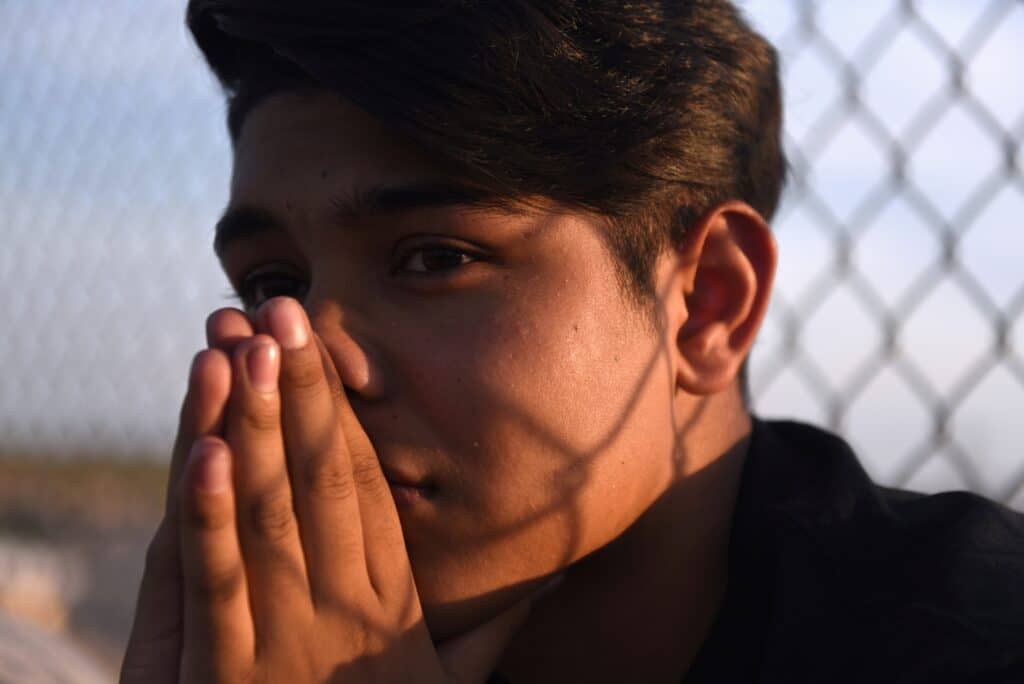
It was during my preparation for the Army that I fired every weapon available, including bazookas, flamethrowers, and grenade launchers. I also fired semiautomatic weapons, which were beginning to make their appearance. I was definitely not a marksman, and I was always aware that shooting practice was enabling me to kill someone.
It didn’t occur to me until much later that perhaps there was some contradiction between all that violence and Jesus’ message. I also came to see that my understanding of nonviolence had been mistaken.
The Inherent Questions of Nonviolence
What I came to see was that the violence within me was the very reason for me to choose nonviolence. You, I, and most people I know are quite capable of violence. The path of nonviolence means that I make every attempt to reject violence as a solution.
Yet I also know that, if someone were to try to inflict harm on my loved ones, I would respond with aggression. And, yes, I still cheer when Shane shoots and kills Jack Wilson at the end of Shane. I still cheer when Rocky Balboa decks Apollo Creed. And I definitely cheered when Black Panther returned to beat up Erik Killmonger.
Am I a pacifist? I’m afraid not. Pete Seeger’s words in his song “Bring Them Home” resonate with me: “One thing I will confess/I’m not really a pacifist/If some army invaded this land of mine/You’d find me out on the firing line.”
In making my own personal decisions regarding gun ownership, I must first decide to what extent I can embrace the fundamental nonviolence of Jesus’ message. There is no way around the fact that he calls us to love our enemy and turn the other cheek. Furthermore, his Sermon on the Mount is a clear invitation to a peaceful lifestyle based on justice and nonviolence.
What do I as a Catholic do with that message? Ignore it? Water it down? Well, surely he didn’t mean I should love the neo-Nazis or that white supremacist who shot up the El Paso Walmart. What did he mean? Was Jesus nothing more than a naive idealist?
Those who acknowledge Jesus’ message will nonetheless suggest that the message must be weighed against harsh realities. That tension is summed up nowhere better than the decisions being made about allowing church members to attend services armed.
Sadly, some of the most heinous mass shootings in our country have occurred in churches and synagogues. As such, I have had people admit to me that they now attend church services armed. Many Church officials are trying to decide how to respond. Should we forbid weapons at services and, if so, how do we monitor that? Will I need to empty my pockets and pass through a metal detector before being allowed in to attend Mass? Should I carry my weapon, prepared to protect my family and fellow church members if a mass shooter barges in and opens fire?
Weighing Your Fear
As we contemplate our personal decisions regarding gun ownership, we are faced with a parallel spiritual decision: How much power do I give to fear? How many of my decisions (such as purchasing a gun) do I make out of fear?
It is not as simple as saying, “Well, I believe the Lord will protect me.” There were people of deep faith who were killed at the El Paso Walmart that August morning. Faith in God is not some sort of bulletproof vest.
And yet Jesus talked about fear a great deal, saying again and again to his followers (and to us): “Don’t be afraid. I am with you always.” In the face of torture and execution, many of his followers faced their enemies with love.
Our recent history reflects the political power of nonviolent resistance in the works of great leaders such as Mahatma Gandhi and Martin Luther King Jr. Were people like Gandhi or King afraid? Did modern saints like Maximilian Kolbe and Dietrich Bonhoeffer have fear as they faced the executioner? Undoubtedly. Yet fear did not make their final decisions.
I was faced with a choice in which fear was a major factor in 2001. I was signed up for the New York City Marathon—then 9/11 happened. It was only a week before when the decision was made to let the marathon take place. We were informed that of some 35,000 registrants, over a third dropped out. I understood why.
In the terrible days after those attacks, we did not know what to expect. Placing thousands of runners on a bridge would seem to be providing an easy target. I considered dropping out myself but concluded that it was a decision I did not want to make out of fear. My fear, after all, would empower others. I went and completed the run, but not without some moments of fear.
We Must Be Peacemakers
So it is these days. The fear in El Paso is considerably higher than I’ve ever seen in my 40-plus years living here. We are seeing horrifying public service announcements on television that portray school shootings. And protective legislation is not forthcoming.
I heard last week that El Paso churches are considering locking the doors shortly after Mass starts and limiting access thereafter. What came to me was the shortest verse in the Bible: “Jesus wept.” Do I weep with him and pray, hope, and work for a better way, or do I resign myself to harsh realities and say instead, “Lock and load”?
I was talking to a young man who believes Jesus’ message has become watered down. The essence of that message is that we are called to be peacemakers. No exceptions. No qualifiers such as “except when.” That calling needs to inform any decision I make regarding owning a gun.
Foster Nonviolence
The knotted gun Non-Violence was originally created by Swedish artist Carl Fredrik Reuterswärd as a memorial tribute to John Lennon after he was shot and killed in New York City in December 1980. The Non-Violence Project Foundation is a nonprofit organization promoting peace and social change through education. For more information, visit Nonviolence.com.
To make any progress toward a safer environment, we need to address several issues:
- Assault weapons have no place in a citizen’s armory; neither do high-capacity ammunition clips.
- If you decide to carry a weapon to protect yourself and your family, then do so with proper training, and secure your weapons so that children do not have access.
- Continue to demand of lawmakers effective legislation to include thorough background checks.
Actions you can take in your everyday life to reflect Jesus’ message of nonviolence:
- Embrace a nonviolent lifestyle as much as possible. This includes praying for your own enemies—the family next door with their loud Saturday night parties, the driver who not only just cut you off but also flipped you off in the process, the source of a childhood hurt, and the countless others who hurt and offend us. In other words, make your own decision about what Jesus meant when he asked you to love your enemy.
- Identify your fears and try to address them spiritually.
- Speak out against unjust violence—be it war, abuse of migrants, bullying, veteran suicides, or the many other manifestations of tolerance of violence in our society.


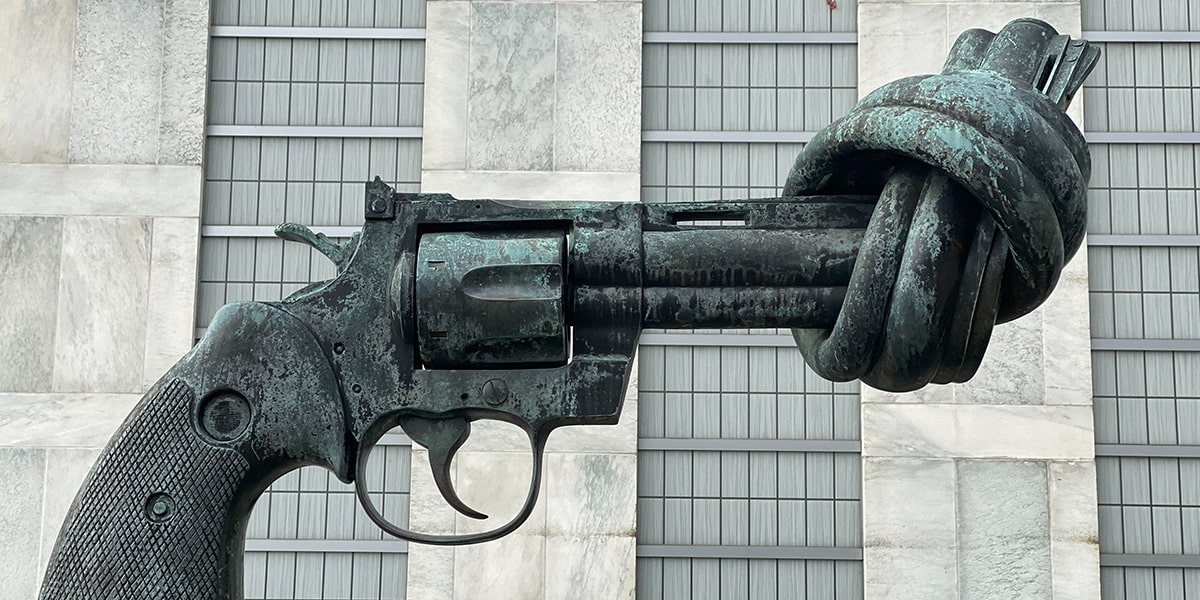

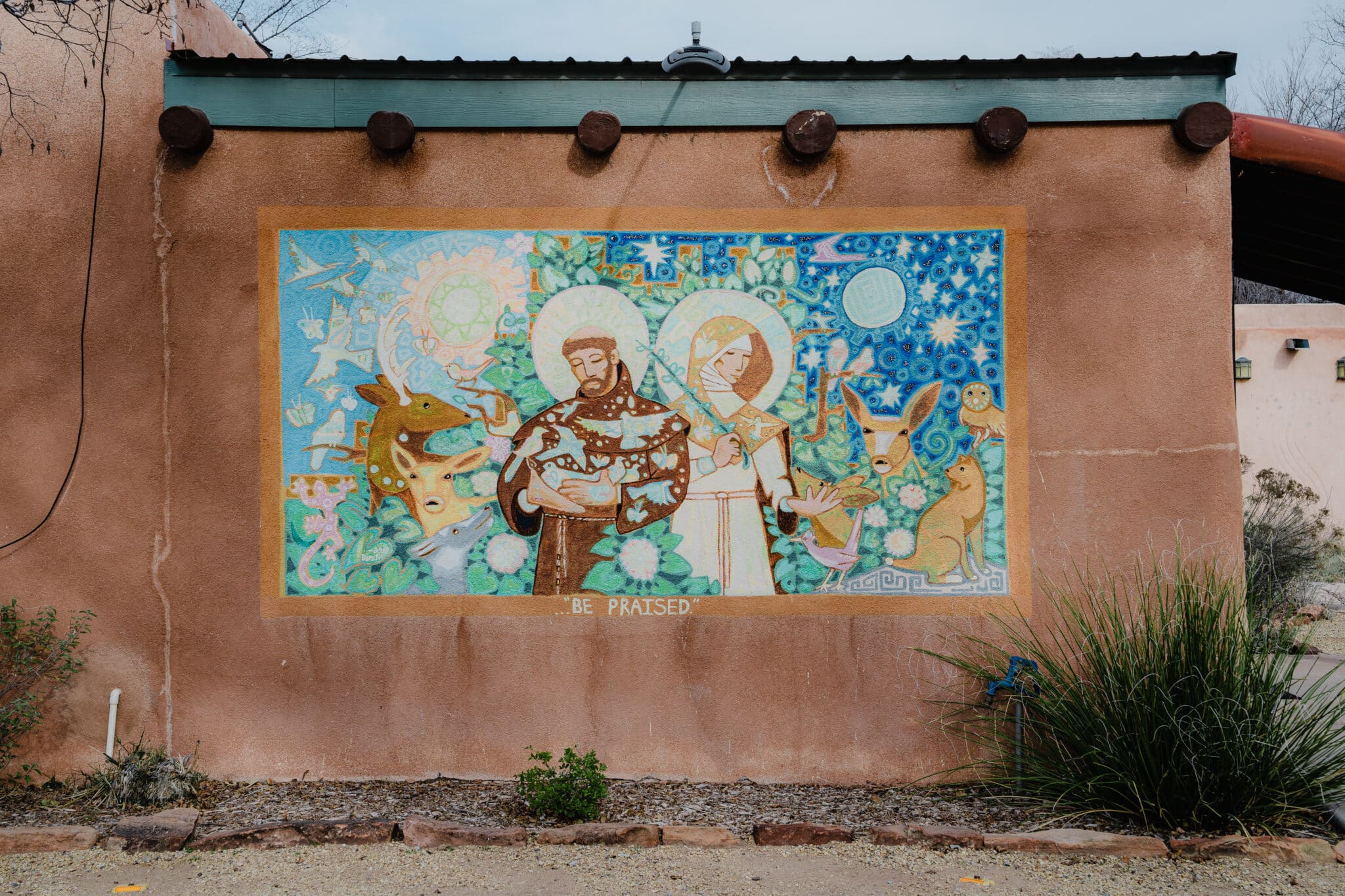

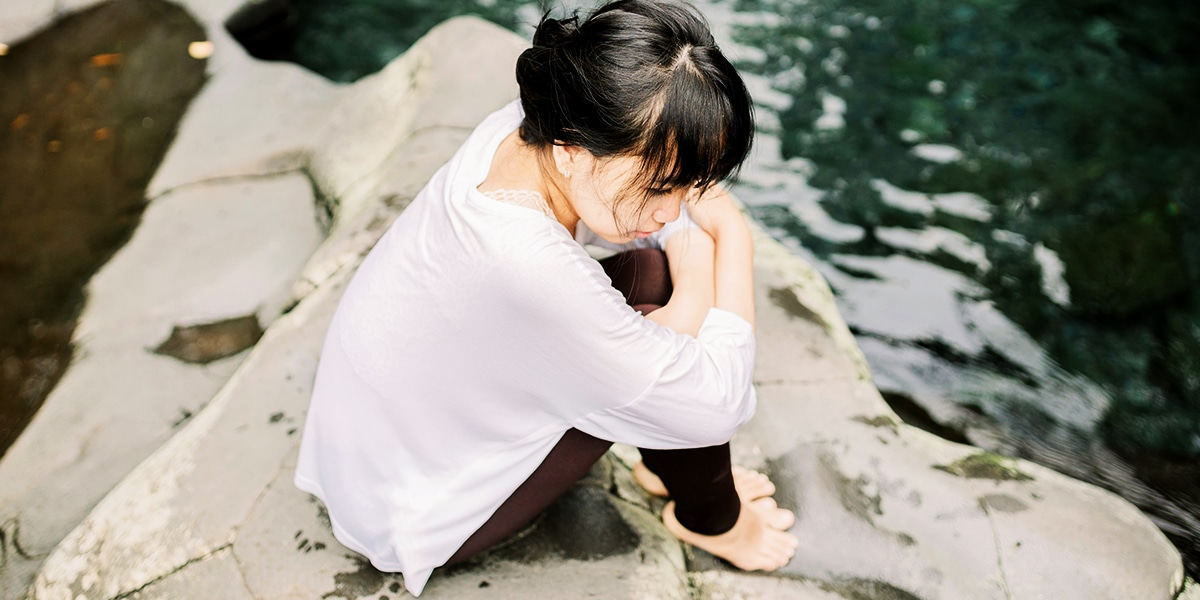
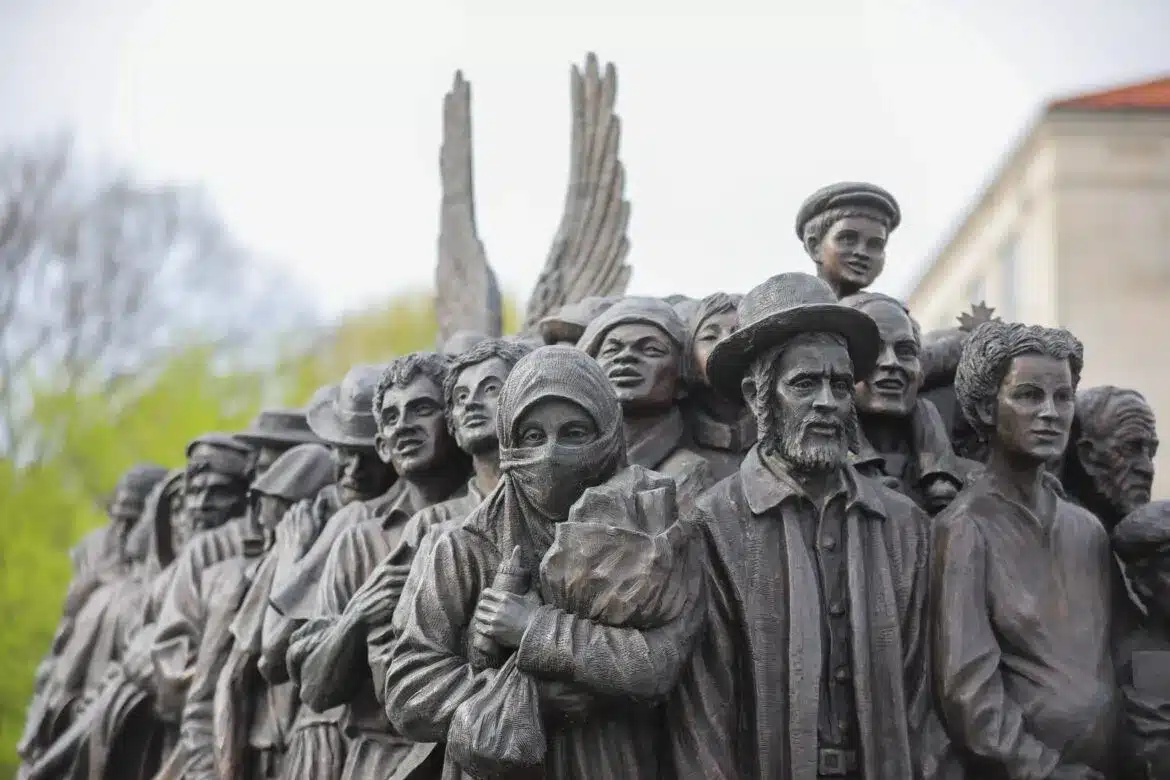
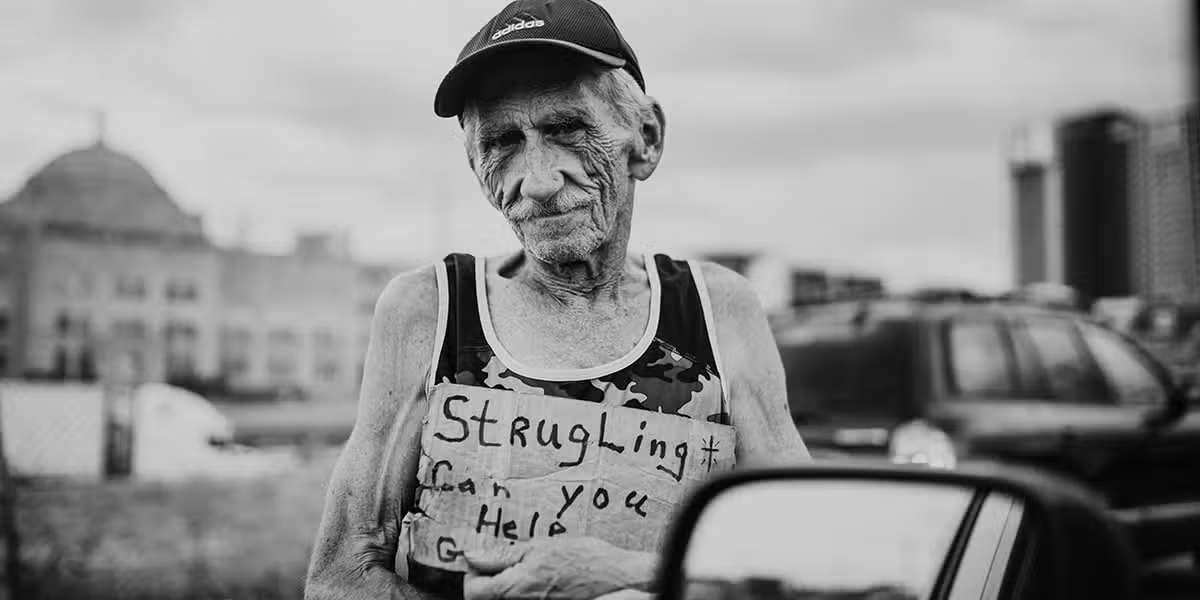
3 thoughts on “Catholics and Gun Control”
You could also follow St. Gabriel Possenti, who used a pistol to save a woman and yet harmed nobody. God bless you.
To be frank I am put off by your language regarding assault weapons and “high capacity magazines”. There are a couple more deep seeded differences in perspective regarding my distrust of our current civil governments and the totalizing power of the current elite regime in the united states requiring a means of being checked passively. — But more than that I think there is a case to be made for civilian ownership of long arms from a historical and social perspective. — While over the last century and a half we have tried to draw a much more clean line between citizen and soldier, I think there is a lot of benefit to the Cincinnatus inspired idea of the farmer putting down his plowshare in favor of a sword, spear and shield (in modern terms, rifle) in defense of his community and people.
I recognize that these are radical positions given the nature of mainstream discourse and the trust many put in our civil institutions. But frankly even as I try to argue my way out of it internally I have a hard time coming to the conclusion that we would be meaningfully safer by erasing rifles or longarms from civilian life and also perceive over the long-term, there being an inevitability to regime collapse and the necessity of otherwise peaceable people being put in a position in which they need to justifiably defend their right to exist. — Such inevitabilities only assert themselves over the course of decades and centuries, but there nonetheless seems to be a precedence. A precedence that seems to indicate to me the benefit of civilian ownership of longarms.
While I recognize these positions are radical and I would very much like to defend them in discourse, I also recognize the need to moderate them — And also the pernicious nature of romanticizing these ideals above all else. — If anyone has the time or inclination to engage in that regard I would be very pleased to do so. — I’m trying to find a reasonable middle ground that renders onto Caesar what is his – doesn’t romanticize or worship the capacity for force or violence unto itself, yet also deals with what seem to me to be inevitable historical realities.
It is a good start but we must go further, and I do think you are wrong Jesus can fully protect us through prayer, better than anything any human could do.
The reality is that the high availability of gun in hands of civilians posses a great risk for everyone, not just civilians who at any time can use them for evil things, but also when police need to interact with them.
While there is a lot of blame shifting trying to portray as if the above is not a major factor of the problem in the USA, other scapegoats as used such as mental health, or saying that more guns are needed, which only exacerbate an already volatile situation.
Unless gun restrictions are put in place, where the majority of them are in the hands of police and the armed forces, just as the Catholic Church teaches, the tragedies we all see in the news will sadly remain a common occurrence, due to lack of courage to do what is needed, given many are more concerned with politics and appeasing the masses instead of doing what is right.
The Catholic Church also does fully endorse and allow people to be full pacifist if they choose to be so, rejecting any weapon or means of bringing harm to others, bc Jesus was so.
Nowhere is it more evident than when he forgave those who crucified him, despite being God himself and able to do many thing to those who were killing him.